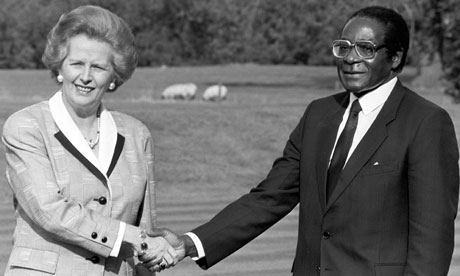I didn't think it was necessary to make a new topic, and even though it's also about a couple of nations outside Europe, I thought this could fit best here, simply because of the huge amount of European countries involved:
The well-being of children in 29 rich countries
State of children in rich countries
Report Card 11: Child well-being in rich countries, from UNICEF’s Office of Research, examines the state of children across the ‘rich’ world. As debates continue to generate strongly opposed views on the pros and cons of austerity measures and social spending cuts, Report Card 11 charts the achievements of 29 of the world’s advanced economies in ensuring the well-being of their children during the first decade of this century.
This international comparison, says the report, proves that child poverty in these countries is not inevitable, but policy susceptible – and that some countries are doing much better than others at protecting their most vulnerable children.
•
Download the full report. (middle orange button, below)
• See
interactive infographic for details by country.
• View video interview with Peter Adamson, author of the report:
The report finds that the Netherlands and three Nordic countries – Finland, Iceland and Norway – again sit at the top of a child well-being table, while four southern European countries – Greece, Italy, Portugal and Spain – are placed in the bottom half.
Child well-being measured
Report Card 11: measures development according to five dimensions of children’s lives – material well-being, health and safety, education, behaviour and risks, and housing and environment.
The study does not find a strong relationship between per capita GDP and overall child well-being. For instance, Slovenia ranks higher than Canada, the Czech Republic higher than Austria, and Portugal higher than the United States of America. ...
more
- - - - - - -
A league table of child well-being (which can be viewed better here:
http://www.unicef-irc.org/Report-Card-11/ --> click on the "rank" button, next to "map")
1 Netherlands 2.4 1 5 1 1 4
2 Norway 4.6 3 7 6 4 3
3 Iceland 5 4 1 10 3 7
4 Finland 5.4 2 3 4 12 6
5 Sweden 6.2 5 2 11 5 8
6 Germany 9 11 12 3 6 13
7 Luxembourg 9.2 6 4 22 9 5
8 Switzerland 9.6 9 11 16 11 1
9 Belgium 11.2 13 13 2 14 14
10 Ireland 11.6 17 15 17 7 2
11 Denmark 11.8 12 23 7 2 15
12 Slovenia 12 8 6 5 21 20
13 France 12.8 10 10 15 13 16
14 Czech Republic 15.2 16 8 12 22 18
15 Portugal 15.6 21 14 18 8 17
16 United Kingdom 15.8 14 16 24 15 10
17 Canada 16.6 15 27 14 16 11
18 Austria 17 7 26 23 17 12
19 Spain 17.6 24 9 26 20 9
20 Hungary 18.4 18 20 8 24 22
21 Poland 18.8 22 18 9 19 26
22 Italy 19.2 23 17 25 10 21
23 Estonia 20.8 19 22 13 26 24
24 Slovakia 20.8 25 21 21 18 19
25 Greece 23.4 20 19 28 25 25
26 United States 24.8 26 25 27 23 23
27 Lithuania 25.2 27 24 19 29 27
28 Latvia 26.4 28 28 20 28 28
29 Romania 28.6 29 29 29 27 29
(Australia, Bulgaria, Cyprus, Japan, Malta and New Zealand have not been included in the overall league table of child well-being, as they have data for fewer than 75% of the total number of indicators used)
You can also browse the five dimensions, per country, on the left side of the screen.
- - - - - -
My, my, the United States are very, very low, especially in educational well-being. They do score best on alcohol risk, though! The Germans do best in the exposure to fighting category.
And the Netherlands -who've won this in the last 5 years or so- are not the best when it comes to health and safety (ranked 5th). Especially the infant mortality rate isn't that great (16th). I was especially focused on that because of my personal experiences, last year.



